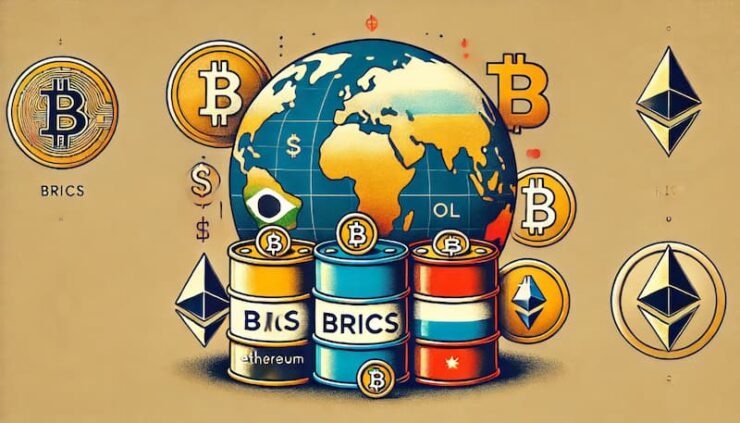Russia is increasingly using cryptocurrencies like Bitcoin (BTC), Ethereum (ETH), and stablecoins to facilitate oil trade with China and India, bypassing Western sanctions and reshaping global financial flows, according to sources cited by Reuters.
This move underscores a broader trend of de-dollarization among BRICS nations, as Moscow deepens ties with China and India while navigating U.S. and European Union restrictions. With crypto playing a growing role in international trade, the geopolitical landscape is shifting fast.
Faced with strict financial sanctions, Russia has turned to digital assets to settle cross-border transactions, leveraging the decentralized nature of crypto to avoid restrictions imposed by the U.S. and its allies.
Sources familiar with the matter say that Russian oil companies are now using BTC, ETH, and stablecoins to facilitate foreign exchange trades between the Chinese Yuan, Indian Rupee, and Russian Rouble.
This move comes shortly after U.S. authorities cracked down on the Russian-linked crypto exchange Garantex, which was accused of enabling money laundering and sanctions evasion. Indian police recently arrested Aleksej Besciokov, a key figure behind Garantex, and he now faces extradition to the U.S..
Despite the U.S. tightening its grip on illicit crypto flows, Russia’s crypto-powered oil trade signals a growing willingness to challenge Western financial dominance.
BRICS Nations and the Push for De-Dollarization

Russia’s pivot to crypto in oil trade aligns with the broader BRICS agenda, which aims to reduce dependency on the U.S. dollar. The bloc led by China, India, Brazil, Russia, and South Africa has been actively working on alternative financial systems to challenge Western economic influence.
With Russia now using crypto to bypass traditional banking rails, it raises questions about whether other BRICS nations could follow suit, accelerating the adoption of decentralized financial tools for international trade.
Crypto Adoption in Global Trade
The use of Bitcoin and Ethereum in energy trade could have far-reaching consequences for the crypto market and global economy.
- Higher Demand for BTC & ETH: As more nations explore crypto-based trade settlements, demand for liquid digital assets like Bitcoin and Ethereum is expected to rise.
- Global Regulatory Scrutiny: Western nations may tighten crypto regulations, pushing for stricter oversight of digital asset transactions linked to sanctioned entities.
- Rise of Permissionless Financial Systems: Crypto’s borderless nature makes it an attractive alternative to traditional banking, challenging legacy financial systems controlled by U.S.-led institutions like SWIFT.
Interestingly, while Russia is turning to crypto for trade, the U.S. is simultaneously exploring its own strategic crypto reserve. The Biden administration has expressed interest in integrating Bitcoin and Ethereum into U.S. financial infrastructure, signaling a shift in how major economies view digital assets.
This suggests that crypto’s role in geopolitics is no longer a fringe discussion—it’s now central to economic strategy and international trade.
What’s Next?
With Russia actively using crypto for oil trade, the stage is set for a broader movement away from the traditional financial order.
- Will China and India officially embrace crypto for trade settlements?
- How will the U.S. and EU respond to Russia’s crypto workaround?
- Could Bitcoin and Ethereum become essential reserve assets for nations facing financial restrictions?
As crypto adoption expands beyond speculation and into the global energy trade, one thing is certain—digital assets are no longer just an investment; they are becoming a tool for reshaping international finance.





